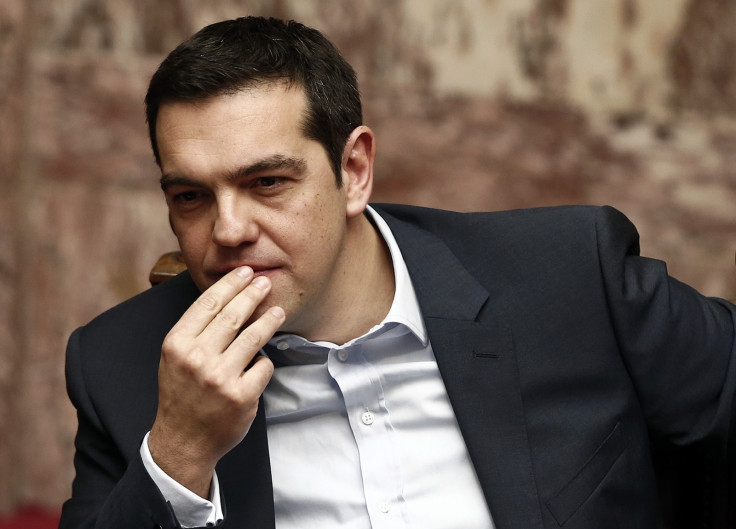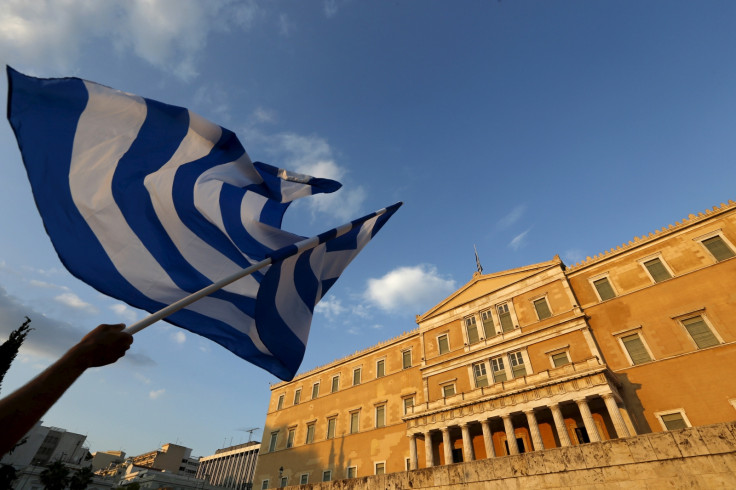Margareta Pagano: Ending Greek tragedy with a Grexit doesn't mean the European dream dies
Hercules, my Greek painter friend, is not going back to Athens for this Sunday's historic referendum on the latest bailout terms because he's too busy painting murals in one of our grandest cathedrals.
Would he prefer to be painting icons in Athens? Yes, he says, along with the other million or so Greek migrants who have left the country over the past few years looking for jobs. And, if he had time to go back, he would most definitely be voting no to the bailout. So would most of his family and friends who he has been talking to daily over the last few days.

He's astonished at the change in mood over the past few weeks: the supermarkets are empty not because there is no food but because everyone he knows has stockpiled as they have bowed to the inevitable and are preparing for the chaos of an exit.
What's more, he reports that only a few months ago, most of his circle would have done anything to cling on to the euro but they now see that such a move is futile; that if they do, nothing will change politically or economically.
Now Hercules believes Alexis Tsipras's brilliant move to call a referendum will result in an overwhelming vote against the bailout. For him, it's no longer a case of if but when and how such a Grexit would take place.
He also wants to know why the EU and Greece can't agree to orderly and long-term bailout terms and stay in the eurozone, like the nine other countries such as the UK, Poland and Sweden who haven't adopted the single currency, and pull out of the euro.
This is the right question. Why have these negotiations been so utterly dramatic? The Brussels diplomats and the EU politicians in their fancy blacked-out cars looking pompous have been myopic in their deliberations; suggesting there is no choice other than austerity with the EU or pushing the Greeks towards handouts from the Russians.
Yet if Greece does break away from the euro and adopt the drachma again, it's hardly the end of the European dream as so many like to pretend. When one foolhardy member of a club falls by the wayside, is that the end of the club? Hardly. What you do is banish the member and do what you can to make departure amicable and, maybe, change the rules so other questionable members (Spain and Italy, for example) don't make the same mistakes.
European challenge for politicians
There are no clauses or allowances in the EU treaties to cover such a forced departure but this in itself presents an opportunity; to rewrite the rules of the club. Finding a way for Greece to exit, devalue and start rebuilding its economy in some sort of Marshall Plan should be the European challenge if the politicians believe in their illusions of a grand alliance; not throwing 11 million people on the edge of the Mediterranean into the Russian sphere of influence at a time when world tensions are so fragile.
Meanwhile, trying to answer Hercules's question of what will happen to Greece after a no vote is as unpredictable as sticking a pin into the proverbial donkey's tail while blindfolded. There's no doubt a Grexit will be brutal, overnight, and will have to be managed as a total surprise and denied by politicians.
Unless the government has been secretly printing drachmas in Plato's imaginary cave, it will take weeks if not months before a new parallel Greek currency could be in circulation. One option would be to create an electronic currency – rather like the euro between 1999 and 2001 – which could be used to pay the most important bills such as salaries and pension payments.

Whatever the game theory suggests, there's little doubt there will be chaos in the first few days; people will start bartering for goods and running up credit with their local shops until a new currency is in place.
Until that happens, Roger Bootle, economist at Capital Economics, suggests the Greeks could continue using euro notes for domestic transfers but at a new conversion rate to a parallel currency.
Bootle, who argues devaluation of up to 30% is the only way for Greece to restore its economy, says the government could then consider price differentials for domestic transfers: say at 150 drachmas for €100 to account for the devaluation.
At the same time, euro coins could still be used for buying the smaller things in life such as bread or cigarettes but at different rates. Such currency changes have happened many times before in many countries from the Hapsburgs to the French to the Argentines and, despite the immediate pain, governments always find a way.
Whether it's a yes or no vote, it looks as though Greece will have to default on the €3.5bn it owes the European Central Bank on 20 July, the next big date in this game of chicken if it hasn't already defaulted before then. A yes vote might bring the creditors back to the table with a new EU loan but that is unlikely since it would set a dangerous precedent for other countries such as Spain and Italy should they come close the edge.
Despite the immediate chaos – and personal pain – that a no vote could lead to in the first few months, an early exit has to be the fairest way of helping the Greeks draw the curtain on this act of their tragedy.
Margareta Pagano is a business journalist who writes for the Independent and the Financial News. Follow her on Twitter @maggiepagano.
© Copyright IBTimes 2025. All rights reserved.






















